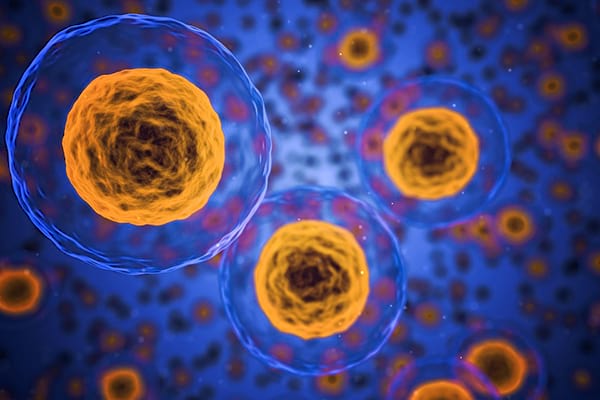Skip To Section
Addiction not only holds your life hostage, but it can also have long-term health consequences. People with substance use disorders are at higher risk for disease and other conditions. While diseases aren’t directly caused by drug abuse — for example, heroin doesn’t cause HIV — diseases may begin with the way you use substances (i.e., sharing needles can spread viruses like HIV).
Other diseases may stem from choices you make while under the influence of drugs or alcohol. For instance, you may feel less inhibited when using substances, which can lead to high-risk situations like unprotected sex. This puts you at risk for sexually transmitted diseases.
When you’re in active addiction, lifestyle habits like proper nutrition and exercise that keep your immune system healthy fall by the wayside. This lowers your immune system’s ability to fight infections, also increasing your risk of diseases from drugs.

What Diseases Are Associated With Drugs?
The National Institute of Drug Abuse reports that common infections among people with substance use disorders include heart disease, HIV, hepatitis, and other infections.
#1 HIV
HIV and injection drug use is strongly linked. The CDC estimates that around 1 in 10 HIV cases in the U.S are attributed to injection drug use. HIV lowers your immune system’s effectiveness, making you more vulnerable to infections. The HIV infection can be managed with medications, but you’ll need to take them for the rest of your life. If you don’t get treatment, HIV can progress to AIDS, which is fatal.
#2 Hepatitis C
Hepatitis C causes liver inflammation and is transmitted through blood by an infected individual. Most people with viral hepatitis C develop it by sharing needles. Hepatitis C often has no symptoms until it has progressed to advanced liver disease. For some people, hepatitis C is short-term, but most people experience it as a long-term chronic disease which can result in conditions like:
- Liver cancer
- Liver disease
- Cirrhosis
#3 Heart Disease and Damage
Substance abuse is hard on the heart and can damage your heart tissue and blood vessels as well as change your heart rate and blood pressure. People who inject drugs are at high risk for infective endocarditis, a serious cardiac illness that can cause death. Antibiotics may help kill off the microbes and restore you to good health, but without treatment, heart infections can be fatal. Damage to blood vessels, arteries, and heart muscles put you at risk for:
- Heart attacks
- Heart disease
- Cardiomyopathy
- Other cardiovascular conditions
#4 Syphilis
Infectious diseases and drug use is associated with the spread of syphilis, a sexually transmitted disease. According to the CDC, the number of syphilis cases increased 74% between 2013 and 2019, mainly due to injection drug use. People who inject drugs are transmitting it through needles as well as high-risk sexual behavior while on substances like methamphetamine. Syphilis may be treated with antibiotics, but left untreated, it can damage the heart, brain, nerves, and eyes.
#5 COVID-19
People with addiction are at increased risk for contracting the coronavirus disease. One study found people who had been diagnosed with a substance use disorder in the past year were at significant risk for COVID-19 and suffered worse outcomes including more hospitalizations and deaths than their counterparts.
Self-Assessment: Am I Addicted?
"*" indicates required fields
Contact Form
Would you like help?
"*" indicates required fields
What Drugs Increase Your Risk of Disease?
According to the National Institute on Drug Abuse, some drugs are strongly linked to diseases. These include:
#1 Cocaine
Cocaine can:
- Increase the speed of an HIV infection.
- Diminish immune cell function.
- Encourage the spread of HIV through increased risk of unprotected sex while using the drug.
#2 Heroin
Heroin is injected most times. Infections among persons who use heroin can be transmitted through needles, cooktops, and almost any other prep surface.
#3 Methamphetamine
Drug users may inject meth, sharing needles and cooktops that can lead to infection. Meth can hinder your immune cells’ ability to fight infections and also increase the progression of HIV and hepatitis.
#4 Prescription Painkillers
People with prescription drug addictions may crush pills and inject the powder. Shared cooktops and syringes can lead to infection.
#5 Club Drugs
Club drugs include substances like MDMA (Ecstasy), LSD, GHB, and Rohypnol. These types of drugs are often used by teenagers and young adults as “party drugs.” They can greatly cloud judgement leading to unprotected sex.
This list is not inclusive of every substance that could spark infection and disease, but it illustrates just how frequently diseases and drug abuse go together.
Reduce Your Risk of Diseases From Drugs
Many of these conditions are painful and even life-threatening. Addiction treatment is the best way to eliminate your risk of infections. Prevention and treatment of drug and alcohol abuse is the only way to avoid harm associated with substance use disorders.
If you have a loved one who isn’t ready to enter addiction treatment, you can encourage them to use some of these harm-reduction measures for disease control and to prevent overdose. The ultimate goal should be sobriety, but the idea is that if harm can be reduced, they may live long enough to eventually get help.
Harm-reduction measures include:
Never Share Equipment
Reusing needles, sharing heating devices, and reusing spoons seems convenient to injection drug users. However, microbes can hide in all these spaces causing infection and spreading disease.
Safe Injection Sites
Some communities offer sites where drug abusers can trade old needles for new ones. They also provide sanitized equipment to prepare drugs. Many safe injection sites include health care professionals who will provide medical attention to people overdosing.
Sober Buddies
The solutions above offer protection from needle-borne pathogens, but people with drug addictions are at risk for unprotected sex. Some infectious diseases are remarkably virulent, and even condoms and dental dams don’t reduce the risk to zero. Having a friend around who stays sober and helps the drug user stay safe can add another layer of protection.
Addiction Treatment
The best way to ensure that you don’t get an infectious disease is to stop using drugs altogether. In treatment, you have space away from drugs and triggers, so you can focus on yourself and getting better. This is the way to lower your risk to zero.
Do Drug Rehabs Treat Medical Conditions?
You’ve decided to enroll in treatment. Do drug rehabs offer disease and substance abuse treatment? The answer is, “sometimes,” but you may need to do a little homework. Some addiction treatment centers are licensed to treat co-occurring mental health disorders and substance abuse (also known as a dual diagnosis). This doesn’t necessarily mean that they are equipped to treat medical conditions that co-occur with addiction.
The best way to determine if a treatment center is staffed to treat a health condition along with substance abuse is to call and ask. If your medical condition is severe, you may need to spend time in a hospital setting before entering an addiction treatment center.
Treatment facilities like Footprints to Recovery provide integrated treatment. Depending on our location we offer medical detox, which is overseen by physicians and nurses. They access your physical and mental health and make a detox plan that includes medications and approaches that are safest for any co-occurring conditions while treating withdrawal symptoms. If you are struggling with health issues, our case managers will make sure you can access the appropriate medical professionals during your time with us. Any medications needed for your condition will be accessed and included in treatment. At many of our locations we also offer nutrition services, yoga, exercise, chiropractic services, massage therapy, acupuncture, and other holistic approaches that support physical healing and overall well-being.
We Can Help
When you’re struggling with substance abuse, your health and future are difficult to consider. We want you to know that you deserve a healthy and fulfilling life in recovery, and it will be well worth the work it takes to get there. Footprints to Recovery addiction treatment center offers a full continuum of care and provides research-based, compassionate treatment that can help you stay sober and healthy. Contact us today for a free, confidential consultation.
- The global burden of disease attributable to alcohol and drug use in 195 countries and territories, 1990–2016
- How HIV Spreads | HIV | CDC
- Hepatitis C | CDC
- COVID-19 risk and outcomes in patients with substance use disorders: analyses from electronic health records in the United States | Molecular Psychiatry
- Methamphetamine and its immune-modulating effects
- Methamphetamine | National Institute on Drug Abuse (NIDA)
- NIDA Notes: Research on Club Drugs | Office of Justice Programs
Our admissions team is available 24/7 to listen to your story and help you get started with the next steps.



